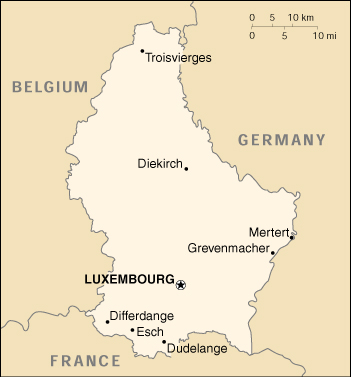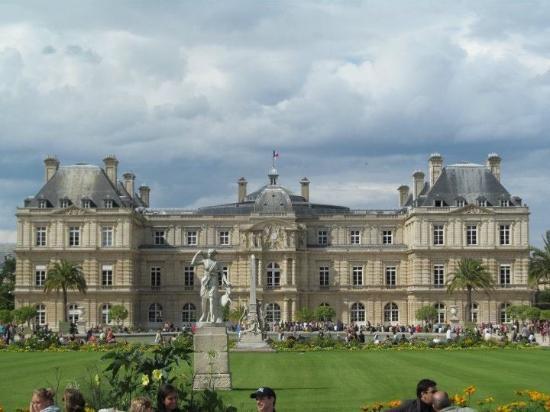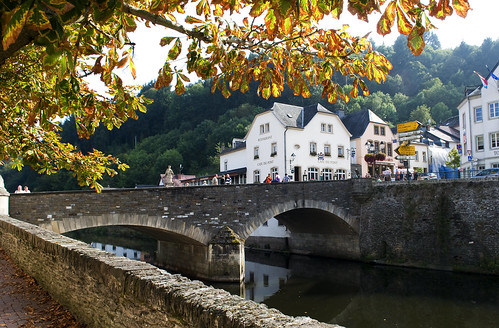Luxembourg: the other super small L country in
Europe. And it’s the last L country going in alphabetical order. This country
makes up the “lux” part of the Benelux economic bloc, along with Belgium and
the Netherlands.
This small country is located in Western Europe,
surrounded by Belgium on the west, France on the south, and Germany on the
east. It used to be referred to as the Ardennes, but later changed its name in
963 to reflect the name of the city of Luxembourg. The name comes from the
Celtic word lucilem, which means
“little or small” and the Germanic word burg,
which means “castle.” The use of the letter X in the name was borrowed from the
French; however, the X is not used in the Luxembourgish language (which is
called Lëtzebuerg in that language). The country ranges from forests to rolling
hills to plateaus. Major rivers include the Alzette, the Attert, the Wiltz, the
Clerve, the Our, the Sauer, and the Moselle.
Luxembourg as we know it began with the acquisition
of Luxembourg Castle, and from there, the country grew around it. The House of
Luxembourg saw three of its members succeed as Holy Roman Emperors during the
14th and 15th century. It was later sold off when no male
heirs were produced, and a number of families and people took over from there.
After Napoleon was defeated, Prussia and the Netherlands fought over who was
going to gain control of Luxembourg. It was formed as a Grand Duchy and compromise
was created to include the country as a part of the Netherlands but manned by
Prussian troops. In 1839, the agreement was changed, and Luxembourg
subsequently gained its independence. This same treaty that granted
independence also cut their territory in half, giving most of the
French-speaking side to Belgium. Imperial Germany moved its way into Luxembourg
in 1914 as it set its war against France, breaking against Luxembourg’s wishes
to remain neutral. Nazi Germany repeated the same actions during WWII. It was
finally opened up and freed in 1944 and went on to become one of the countries to
found the United Nations the following year. Luxembourg was also one of the first
countries to join a number of other organizations including the European Union
(EU).
The city of Luxembourg is the largest city and capital
of the Grand Duchy of Luxembourg. The Luxembourg Castle was situated near the
corner of two Roman roads, and from there the name lent itself to the city and
then the country. With a population of a little more than 100,000 people, this
relatively small city has a number of museums, theatres, restaurants, sports
venues, and memorials. The city’s American Cemetery and Memorial is the burial
place of Gen. George S. Patton. With a modern infrastructure, Luxembourgers are
able to travel throughout and out of the country with ease.
As a high-income country, Luxembourg enjoys a
fairly stable economy. Unemployment is among the lowest in Europe, and the
quality of life there is generally high. Up until the 1960s, Luxembourg was a
leading producer of steel, but now also relies on various chemical productions,
rubber and other products. Banking and finance is also a major economic driver;
the country is the 3rd most popular place for those interested in
tax evasion (after Switzerland and the Cayman Islands). Luxembourg also ranks high
on the number of cars per 1000 people, coming in at 741 cars per 1000 people
(the US in comparison ranks at 809; the UK ranks at 519; China ranks at 128;
San Marino is the only one above 1000, coming in at 1263). It’s been ranked as
one of the top countries in the world for economic freedom. Several large
corporations have their headquarters there, including Skype.
It’s illegal in Luxembourg to take any statistics
regarding religion, and it’s more or less considered a secular state. However,
the state has arrangements with certain religions where they cover certain
operating costs: Roman Catholicism, Greek Orthodoxy, Russian Orthodoxy, Islam,
Lutheranism, Mennonitism, Judaism, and Anglican churches all take advantage of
these arrangements. Even at that, there are more people who either don’t
believe in God or believe in some kind of life force or spirit than those who
do believe in God.
Luxembourg is trilingual country: the official
languages are French, German, and Luxembourgish (which is considered the
national language). German is only listed for historical reasons, and French is
the language of the government. In their school system, children in early
elementary school are taught in Luxembourgish before being taught in German.
Then in secondary school, students are taught in French. English is also taught
as a foreign language at the secondary level and so is Portuguese in certain
areas where there is a large immigrant population.
The entire country of Luxembourg has less people
than the city of Milwaukee, Wisconsin, making it one of the least populated
countries in the Europe Union. But its small size hasn’t held it back from
tying for third with the most Eurovision Song Contest wins (tied with France
and the UK at five wins, following Sweden with six wins and Ireland with
seven.) I’m sure there are a number of other big things Luxembourg has done,
and I’m sure I’ll find out more.
Up next: art and literature







No comments:
Post a Comment